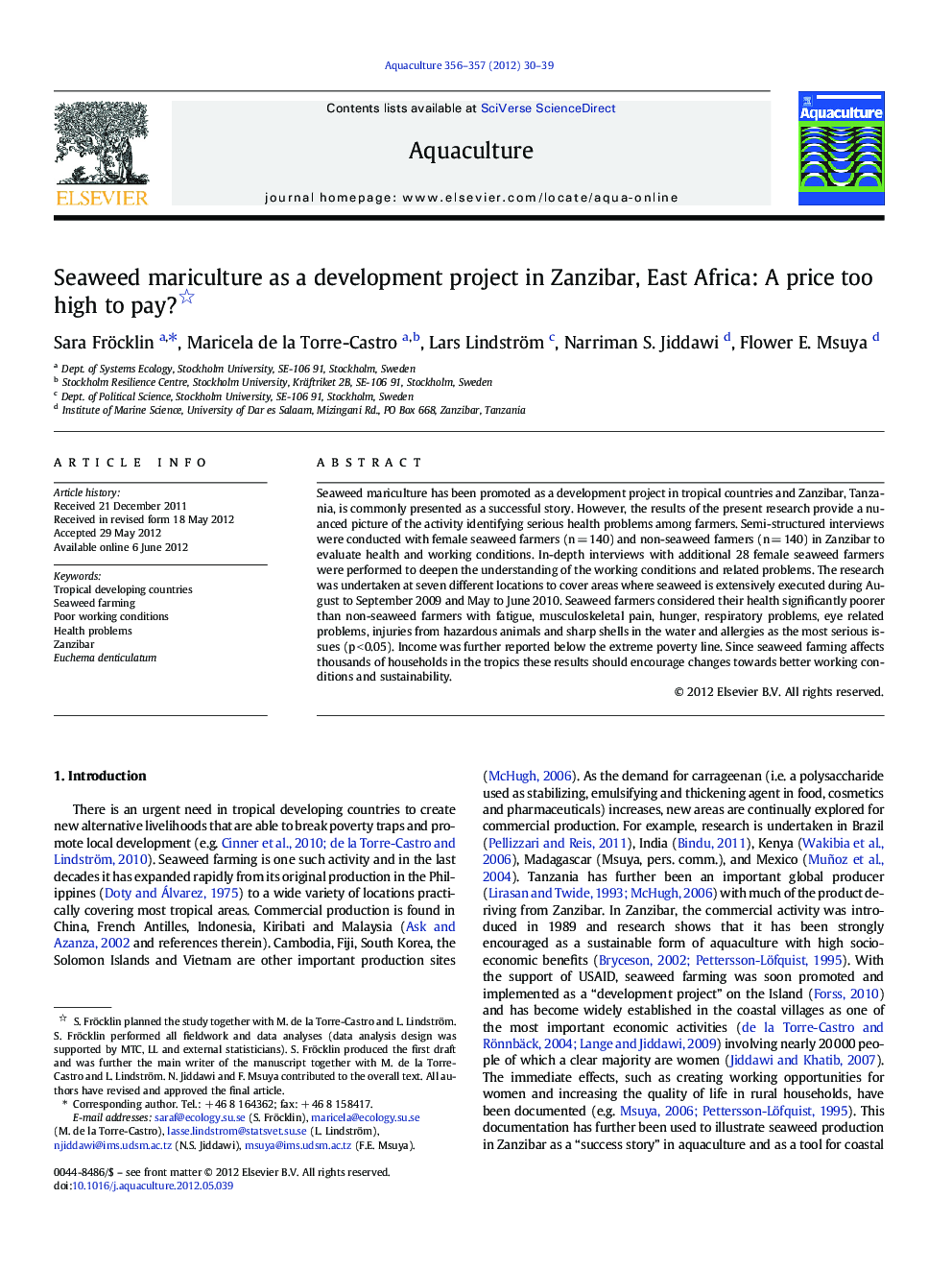| Article ID | Journal | Published Year | Pages | File Type |
|---|---|---|---|---|
| 2422544 | Aquaculture | 2012 | 10 Pages |
Seaweed mariculture has been promoted as a development project in tropical countries and Zanzibar, Tanzania, is commonly presented as a successful story. However, the results of the present research provide a nuanced picture of the activity identifying serious health problems among farmers. Semi-structured interviews were conducted with female seaweed farmers (n = 140) and non-seaweed farmers (n = 140) in Zanzibar to evaluate health and working conditions. In-depth interviews with additional 28 female seaweed farmers were performed to deepen the understanding of the working conditions and related problems. The research was undertaken at seven different locations to cover areas where seaweed is extensively executed during August to September 2009 and May to June 2010. Seaweed farmers considered their health significantly poorer than non-seaweed farmers with fatigue, musculoskeletal pain, hunger, respiratory problems, eye related problems, injuries from hazardous animals and sharp shells in the water and allergies as the most serious issues (p < 0.05). Income was further reported below the extreme poverty line. Since seaweed farming affects thousands of households in the tropics these results should encourage changes towards better working conditions and sustainability.
► Seaweed farmers presented a significantly poorer health than non-seaweed farmers. ► This was a result of poor working conditions and labor intensive work. ► The income generated from seaweed farming was below the extreme poverty line. ► The activity had high individual costs but low benefits. ► Broader social and ecological issues must be analyzed and not only instant benefits.
